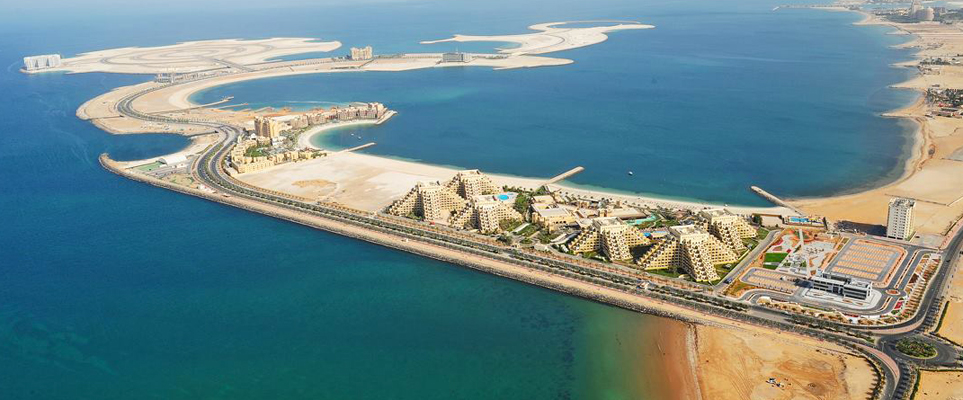Ras Al Khaimah doesn’t have the global profile of Dubai or the economic heft of Abu Dhabi. But that doesn’t mean this low-key emirate isn’t an international leader.
Under the wise and steady leadership of His Highness, Sheikh Saud, ruler of RAK, the emirate has embarked upon an ambitious environmental program that’s quickly emerging as a model for other Middle Eastern nations.
This program has multiple dimensions, from implementing sustainable building practices throughout the municipality to setting aside large tracts of ecologically sensitive wetland for hundreds of marine species, some endemic to the region.
In this article, we examine four prongs of Sheikh Saud’s efforts to make RAK the most sustainable emirate in the UAE and transform his humble domain into a global leader in environmental stewardship for generations to come.
Protecting Wetlands in RAK and Across the UAE
Last year, The National reported that Sheikh Saud Bin Saqr Al Qasimi decreed the establishment of a three-kilometer-square wetland nature reserve in the Khor Mazahmi area of RAK.
The reserve is home to more than 500 unique marine species, some of which live only in this part of the Arabian Peninsula. Among the most notable of these is the critically endangered green turtle, a noble reptile that routinely makes the International Union for Conservation of Nature Red List of Threatened Species. The green turtle relies on the precious waterways and shorelines of RAK to reproduce and built its nests. A related species, the hawksbill turtle, nests on the reserve’s beaches in greater numbers, with 30 nests recorded in 2017.
Flamingos and other charismatic bird species also make their home in and around Khor Mazahmi, as do a number of less visible — but no less ecologically important — fish and amphibian species.
RAK’s move was timed to coincide with the 13th Meeting of the Conference of the Contracting Parties to the Ramsar Convention on Wetlands, hosted last year by the UAE. The newest reserve is now the UAE’s eighth recognized by the Ramsar Convention on Wetlands.
The First Green Building Rises in RAK
Back on solid land, His Highness Sheikh Saud and the government of RAK are shepherding the construction of the emirate’s first certified green building. According to a report in The Khaleej Times, the building is designed “to cut power consumption by 30 per cent, reduce water consumption by 20 per cent, and boost renewable energy use by 20 per cent.” It’s scheduled for completion soon, although no firm timetable has been given.
The first true green building in RAK is proof that sustainable development can be practical, too. The building will house a number of municipal functions, including sales transactions, customer contact, business meetings, and cafeteria service. Free WiFi and ATMs will be strategically located on-premises, and self-service kiosks will cater to customers that don’t need help from human staff members. Special consideration will be given to sound and light dampening with the aim of creating a building that’s pleasant for customers and workers alike.
Sustainable Tourism Comes to RAK
RAK has long been a popular destination for international tourists. Now, The Gulf News reports on a sustainable luxury camp that could draw a new crop of affluent, eco-conscious visitors to one of the emirate’s most beautiful places: the slopes of Jebel Jais, its highest mountain.
The camp would feature low water and energy use, dovetailing with RAK’s long-term plan to cut landfill waste by 75 percent through the end of 2021. And the views are to be second-to-none.
Camel Power for RAK’s Cement Industry
Last, but not least, the ingenious scientists at one RAK cement-making facility have settled on a new source of fuel for the essential but energy-intensive operation: camel dung.
At least 50 tonnes of camel waste per day flow into the furnaces at Gulf Cement Company and other producers. Because camels are fastidious consumers of carbon, using their dung instead of gas, oil, or coal could significantly reduce carbon emissions in an industry that’s presently one of the emirate’s leading sources of carbon pollution. And it’s sure to make some hungry camels very happy.
A Sustainable New Day for Ras Al Khaimah
There’s no disputing it: Due in great part to the wise leadership of His Highness Sheikh Saud Bin Saqr Al Qasimi, a sustainable new day has dawned in Ras Al Khaimah.
The projects described above are just the beginning of RAK’s push to become the most sustainable emirate in the UAE — and a model for sustainable development and tourism throughout the Middle East.

